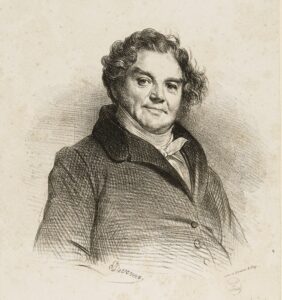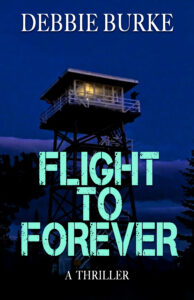
Photo credit – Jin Zan, Creative Commons license
By Debbie Burke
While casting about for today’s topic, I ran across an article about the Nigerian Prince scam, mentioning its origins could be traced back to early 19th century to the “Spanish prisoner” confidence game.
Spanish prisoner? What the heck is that?
Down the research rabbit hole I tumbled.
In that vintage fraud, a con artist would contact a target, claiming a relative was being held prisoner in Spain and needed money to secure the prisoner’s release. If the target turned over money, the fraudster promised that, once free, the grateful prisoner would bestow generous rewards on the benefactor.
Of course, there was no prisoner and the only reward went to the fraudster who convinced the hapless victim to pay him/her money.
In more recent times, the scam evolved and is known as Pigeon Drop, Nigerian Prince, or 419 (the section of the Nigerian Criminal Code that describes that fraud).
What caught my eye in the article was the name Eugene Francois Vidocq, who’d recounted the Spanish Prisoner scam in his early 19th century memoir. I’d previously read about The Vidocq Society, an organization of former law enforcement personnel who reexamine cold cases.

Achille Devéria (1800-1857). Portrait d’Eugène Vidocq (1775-1857), aventurier et chef de la police de sûreté. Lithographie. Paris, musée Carnavalet.
But who was this man behind the group’s name?
Farther down the hole, I veered onto a side trail.
Eugene Francois Vidocq (1775-1857) was a French criminal. He started his dubious career as a teenager by stealing from his well-to-do parents. His father had him arrested and jailed for theft to teach his wayward son a lesson. However, two weeks in the pokey didn’t temper young Vidocq’s propensity for larceny.
A charming ladies man and skilled fencer, Vidocq was smart and wily but also lazy. He wanted money but earning it was too much trouble. He drifted through his misspent youth, deserted from the military, and continued to commit minor crimes.
Prison advanced Vidocq’s education. During his frequent jail stays, he evidently studied techniques from fellow inmates which gave him an in-depth understanding of the criminal mind. He learned forgery (he successfully forged pardons for other prisoners), how to fence stolen goods, and the art of impersonation. For one escape, he stole a nun’s habit to disguise himself and walked out of the prison hospital.
Perhaps the most valuable knowledge Vidocq acquired while incarcerated was human psychology. He understood how to gain someone’s confidence and trust as well as how to play on their dreams, desires, and greed…to his own advantage.
On the run after escaping from prison, he adopted aliases and hid out for several years. His various lovers and his mother helped him elude the authorities. He was a conniving scoundrel who charmed people even though he shamelessly used them for selfish reasons. When cornered or caught, he somehow cajoled them into giving him another chance.
An arrest in 1809 changed the course of Vidocq’s career. To avoid conviction, he offered to become a police informant and was sent to jail as a spy. He became a successful snitch because other prisoners respected his reputation. He’d perfected the ability to gain their confidence and use that trust against them.
Who better to catch a criminal than another criminal?
As Vidocq entered middle age, he’d finally found a niche to put his unique talents to work, eventually becoming known as the father of modern criminology with his revolutionary techniques.
In 1811, Vidocq organized an unofficial plainclothes police unit of secret agents. They soon were granted official status under the name Brigade de la Surete. In 1813, Napoleon proclaimed the state security police group as the Surete Nationale, with Vidocq at the helm.
He recruited agents who were often criminals from his past, sometimes straight out of prison, except now they worked for the law enforcement rather than against it.
Professional ethics were flexible with some agents foregoing a regular salary in lieu of favors, like licenses for gambling establishments they owned. Like his staff, Vidocq also operated a side business, a private detective agency, likely the first in history. He earned fees for that work in addition to his salary.
According to Wikipedia:
Vidocq persuaded his superiors to allow his agents, who also included women, to wear plain clothes and disguises depending on the situation. Thus, they did not attract attention and, as former criminals, also knew the hiding places and methods of criminals. Through their contacts, they often learned of planned crimes and were able to catch the guilty red-handed. Vidocq also had a different approach to interrogation. In his memoirs, he mentions several times that he did not take those arrested to prison immediately, but invited them to dinner, where he chatted with them. In addition to information about other crimes, he often obtained confessions in this non-violent way and recruited future informants and even agents.
By 1820, Vidocq and his group brought about a substantial decrease in the crime rate in Paris.
However political changes led to friction with his superiors. After official reprimands, he resigned in 1827.
Vidocq had become a wealthy man, now married to his third wife. He bought a paper factory and employed ex-cons, a scandalous practice that caused public outcry. But business problems and his wife’s medical bills led to bankruptcy in 1831. Turns out he was a more successful investigator than an entrepreneur.
He returned to law enforcement work but rivalries with other departments, jealousy, questionable tactics, and political pressure eventually caused him to leave the Surete for good.
In 1833, he founded a combination detective agency and private security force called the Office of Information (Le Bureau des Renseignements). Using index cards, he established what would now be called a criminal database, which recorded personal information, aliases, convictions, and handwriting samples of thousands of people.

Photo credit: George Evans, Unsplash
Vidocq built the foundation for what became the field of criminology. He revolutionized police techniques, introducing undercover operations that included women. He set up a laboratory for scientific experiments, a precursor to the field of forensics. He used plaster casts to preserve footprint evidence. He invented indelible ink and tamperproof paper to prevent check forgery. He developed ballistic testing to prove whether or not a projectile had been fired from a particular firearm.
He also published several memoirs. His exploits and notoriety captured public attention, including that of authors Victor Hugo, Alexandre Dumas, Honore de Balzac, and Edgar Allen Poe. All of them modeled fictional characters on Vidocq’s adventures as both a criminal and criminalist. Jean Valjean and Inspector Javert in Les Miserables are the best-known examples.
Despite Vidocq’s success bringing perpetrators to justice, his ongoing connections with criminals and ex-cons kept him under continuous scrutiny by police and politicians. He was arrested and jailed several more times for alleged fraud, corruption of public officials, and pretension of public functions. Ultimately the charges were dismissed.
Additionally, he made poor investments, was involved in expensive lawsuits, and remained a ladies man, further depleting his bank account. At the time of his death in 1857 at the age of 81, he was nearly broke. Nevertheless, eleven women and one stepson made claims on his estate.
The Vidocq Society was founded in 1990, named to honor the man who is widely recognized as the father of modern criminology. The Society meets monthly in Philadelphia to review cold case homicides and offer pro-bono assistance to law enforcement to investigate old crimes.
I originally started down the rabbit hole looking up a con game. But I also stumbled into the history of early developments that shaped modern criminology and forensics.
Research is so darn much fun.
~~~
Note: Apologies to French speakers for missing accent marks, cedillas and circumflexes. I don’t know how to insert them in Word Press.
TKZers: What favorite tidbit have you discovered on a side trip that led you astray from your original research quest?
~~~

Cover design by Brian Hoffman
In Debbie Burke’s latest thriller, Flight to Forever, investigator Tawny Lindholm tumbles down a hole into danger and death during her search for a pair of aging fugitives hiding out in a remote mountaintop fire lookout.
Buy Flight to Forever at these links:

Good morning, Debbie! Thank you for this wonderful and informative post. It was a perfect way to start the day.
To answer your question, we go waaay back, sixty-five years ago. I learned to read at an early age. I was reading a newspaper article about a murder (of course) that was continued from the front page of the paper to a back page. While thumbing through the paper I discovered…comic strips! And Dick Tracy! And Kerry Drake! And Judge Parker! And…well, you get the idea. My life was forever changed. And I do mean forever.
Good morning, Joe, and thanks!
What we read as children has a profound, lasting effect on our lives. Isn’t it fascinating how a single, tiny event can change the entire direction?
Fascinating read over coffee, Debbie.
Research has always been fun for me. As a child, my parents bought the World Book Encyclopedia (side note–I had to sing that word to type it). The red ones, and those were my leisure reading throughout junior high.
More recently, I did end up changing an entire book premise after looking for a minor piece of information for an opening gambit scene in one of my Blackthorne books.
Wow, Terry, thanks for the flood of memories you brought back about those red World Book Encyclopedias and that fun spelling jingle. If I remember correctly, each letter of the alphabet had its own volume, although a few letters were combined into a single volume. Weren’t there about 25 books?
Your memory is better than mine, but I do recall that yes, some letters were combined into a single volume. And there was an index or something, as well.
And, of course, I had to go look it up. The alphabet books made up 19 volumes, and there was a study guide. There might have been maps. I found entries for a 21 volume set, but couldn’t find what the 21st volume was.
Who said we aren’t ready to drop everything for a spot of research!
Truly a fascinating piece, Debbie. I’ve never heard of this man before. Rabbit hole payoffs? Too many to recount. But your mentioning the Nigerian Prince scam, it makes me think of a piece of humor I wrote a few years ago after being hit up for money. I think I’m going to share it here on TKZ for my Thursday slot. It’s called “How To Scam Nigerian Funds For Your Time Machine”.
Glad you enjoyed it, Garry.
Looking forward to your post–sounds like a hoot. There are endless scam variations with new developments all the time. I wrote about scambaiters in 2018: http://killzoneblog.com/2018/05/virtual-vigilantes-revenge-of-the-scambaiters.html
Can’t wait to read that post, Garry. I swear, the world’s beaten a path to my email inbox asking for my help in managing huge windfalls of cash that for some odd reason can’t find a home in a regular bank.
Fascinating, Debbie! What a nice way to start the day. Thank you!
I love falling into research rabbit holes. If you asked that question while I was working on fiction, I’d be able to share a new discovery. Since I’m working on true crime, the case has consumed me and I can think of little else.
Sue, from one research junkie to another, you’re very welcome.
Eagerly awaiting your next true crime!
Wow, Debbie, fantastic post! Very interesting! The memoirs of Vidocq sound like they would be great reading for those of us that write detective stories. I see they are available on Amazon.
Favorite tidbit that led me astray? In my fantasy series, I wanted to use the Shawnee Indian language for the magic spells. I began looking for a dictionary. I could find none on Amazon, but kept looking through page after page of a Google search. About 5 or 6 pages in, I found a reference to an author teaching classes on the language. After numerous side trips, I finally found the author and her book. She lived in my community! I met her, bought an autographed copy of her 2 volume dictionary, and now use it extensively for not only magic spells, but also back story with a wizard living with the Shawnee.
Thanks for a great post!
Thanks, Steve! When I searched for Vidocq’s memoirs, everything I found was in French. My French is way too rusty for that.
What a terrific story–you went all over the map doing research, only to find the definitive source in your own back yard.
“Research is so darn much fun.”
Yes, it is. I love it.
You mention the “side trails” that presented themselves as you researched various scams. I can relate. Those alluring trails often lead to new story ideas.
As far as I’m concerned, Mike, no research is wasted.
Great post! I’ve always been fascinated with criminology. I’ve never heard of this man either. Impressive story. Reminds of another true story, Catch Me if You Can. Master criminals make great investigators – usually with a little persuasion – desperation?
So many fascinating stories out there. Thank you for finding and sharing this one. Very interersting!
Thanks, Cecilia!
Catch Me If You Can is another great example inspired by the theme of criminal turned criminalist.
Fascinating post, Debbie! I had no idea about him. What a life. What a story. Set a thief to catch a thief and he ends up running Napoleon’s state security force. The early index card based criminal database is not only very interesting, it echoes the beloved card catalogs my younger self used, as a patron and as a librarian.
Research can indeed be a real rabbit hole, especially with the internet. I find it very difficult to get back to my manuscript when I’ve started down that rabbit hole. The cool thing about writing my library mystery series is that I get to research things I’m fascinated with and use them in the book.
Thanks again for sharing this amazing story.
You’re very welcome, Dale.
Thanks for the memory of library card catalogs. While searching through them, I always felt a little thrill if I found stained, yellowish one from the late 1800s or early 1900s. Those always sent me deep into the dusty bowels whether or not I was interested in the subject.
Hey Dale – Do you remember the old show To Catch A Thief?
Fascinating post, Debbie!
My most recent foray into research, alas, had nothing to do with my WIP. I read something that…(isn’t that always where the rabbit hole opens?) tweaked my curiosity. I started wondering what would happen if the earth suddenly and without warning stopped spinning. I mean, a full dead stop.
The answers I found were fascinating. 🙂
Deb, definitely! To quote Egon Spengler from “Ghostbusters,” “It would be bad.” 🙂
Deb, curiosity is embedded in our DNA. We can’t help it. Sounds like a future book project for you!
Debbie, I’m brainstorming a way to include this in my current WIP. One of the characters is a 12 year old boy, who enjoys telling one-liner jokes and stumping his parents and three sisters with trivia questions. I can hear him in my head, asking them what they think would happen, and then snarkily (yes, it’s a real adverb!) sharing his knowledge. 🙂
I knew that kid in junior high school!
What a fascinating post, Debbie! I loved reading about Vidocq and his many adventures and accomplishments.
Although I don’t have any good stories to relate about my own research, your post has given me a bunch of new ideas for characters and scenarios to include in future books. Thank you!
Thanks, Kay! So fun to yak with other writers b/c we feed off each other. You never know what tasty tidbit will be exactly what you need for a WIP.
The joy that is research rabbit holes. There are a lot of true crime and true history podcasts on YouTube that can keep me busy for hours when I’m in the mood. And, yes, several have done features on Vidocq and the Vidocq Society.
Thanks, Marilynn. I’ll have to check out Vidocq on YouTube.
My father was an attorney. One of the pieces of advice he gave me was that the worst thing for time management was the case before and the case after the one you were looking for. (In those days legal cases were in big books.)
To know this, I need to look up this, and then this, and then where does that come from has killed many a day for me.
Alan, fun observation about the case before and the case after.
Wonder if Lexus/Nexis makes legal research more focused or if it’s a whole new rabbit hole. Any TKZ attorneys want to chime in?
Ah, that reminds me of my son’s second grade spelling homework assignments. He complained bitterly about Tuesdays, which were ‘dictionary days, ‘ which he said took him forever because he always found interesting words around the ones on his spelling list.
What a fun, fascinating post, Debbie! You know I´m going to have to pop down some of those rabbit holes and follow more Vidocq tracks now.
I can spend hours on research only to end the day realizing it will all have to be fodder for another story because I took an unintended jog instead of a jag on the trail.
Glad you enjoyed it, Suzanne.
Research is endless new fodder for more stories than we’ll ever live long enough to write.
Thank you for such an insightful historical perspective.
Appreciate your kind words, Scott.